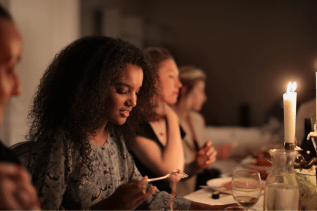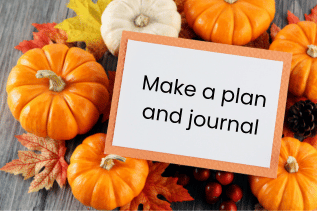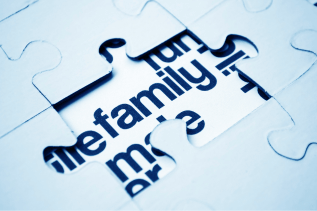Navigating Thanksgiving while recovering from an eating disorder may feel like going to a New Year’s Eve party as a recovering alcoholic. It’s tough but 100% doable. This is because a large part of the Thanksgiving holiday revolves around food. For someone with an eating disorder, this can create a great deal of anxiety and stress. Whether you or a loved one is recovering from anorexia nervosa, bulimia nervosa, or binge eating disorder, the shame and anxiety surrounding food remains. These are complex issues that our counselors can help you understand and treat. Therefore, today we are not going to “fix” this problem. However, in this blog we are going to share some tips and tools to help put you or a loved one’s mind at ease before tomorrow.
Communication is Key
Open and honest communication with your therapist, friends and family is crucial. Let your loved ones know about your challenges and preferences when it comes to food. Share with them what kind of support you need during the holiday. If you feel uncomfortable sharing these issues with family, reach out to a friend you trust. Even if they can’t be there, they can help you talk out your feels.
Plan Ahead
Having a plan in place can be empowering. If you’re attending a gathering, consider bringing a dish that you feel comfortable eating. This ensures that there will be an option available that aligns with your dietary needs. Additionally, planning non-food-related activities during the day can provide structure and reduce the emphasis on meals. According to the Eating and Recovery Center’s article, Thanksgiving and Eating Disorders: 15 Tips to Help Throughout the Day there are three main events to plan for when considering Thanksgiving.
- Plating Food
- Dealing with exposure to food
- Addressing social anxiety, and more
It can also help to reframe how you view these obstacles. Challenge yourself to see this as an opportunity to put your eating disorder recovery skills to use. You have the skills because you are in recovery. It’s game day, you got this. And remember to journal about your experience before and after because going over the event with your therapist can help you approach next year with even greater ease.
Taking the Focus Away from Food
Being mindful of how much power you give food can also be a game changer. Remember that the food served at Thanksgiving is available year round. Therefore, try putting your energy towards something else. Try doing a crossword puzzle and asking a family member to help solve clues while they are cooking. Or what about doing a 1000 piece puzzle with your cousins? Going for a walk or simply watching a kids movie with nieces and nephews can help you put the emphasis back on family and off of food. In general, it’s important to have something to look forward to that doesn’t revolve around food. That said, what is something you are excited for this Thanksgiving?
Boundaries on Body Comments
Family and friends sometimes say things like, “you look healthy” and for some, this can be triggering. If you don’t want anyone saying anything to you about your appearance or food choices give yourself permission to express that directly. And if you don’t want to confront anyone, excuse yourself and go journal about it. Writing things down to talk about with your therapist is very helpful because it gives all of your feelings a place to exist without bottling up within you. You can learn more about navigating body comments here.
Start Receiving Support From Therapists in Savannah, GA
Navigating Thanksgiving with an eating disorder requires a delicate balance of self-care, communication, and mindfulness. By setting realistic expectations, planning ahead, and seeking support, individuals can approach the holiday with a greater sense of empowerment and well-being. Remember that you are not alone, and there are resources and people available to help you through this challenging time. If you or someone you know is struggling in their daily life, consider seeking help from a professional counselor at Water’s Edge Counseling. You can connect with a professional counselor at Water’s Edge Counseling to help support you or your loved one with maintaining a balanced mindset and overall mental health. Our team would be honored to offer support from our Savannah, GA-based practice. You can start your therapy journey by giving us a call at 912.319.5552 or emailing us at info@watersedgecounseling.com.
Other Services Offered With Waters Edge Counseling
We understand that you may experience issues with more than one mental health concern at a time. This is why we are happy to offer support with a variety of mental health services. Our team is happy to offer support with multiple mental health services including online counseling, clinical supervision, coping after a cancer diagnosis, and SCAD student counseling. We are also happy to offer therapy for anxiety, depression, eating disorders, substance abuse, teen substance abuse, and counseling for men. In addition, we also offer counseling for teens, child counseling, family counseling, Christian counseling, grief counseling, and marriage counseling.




